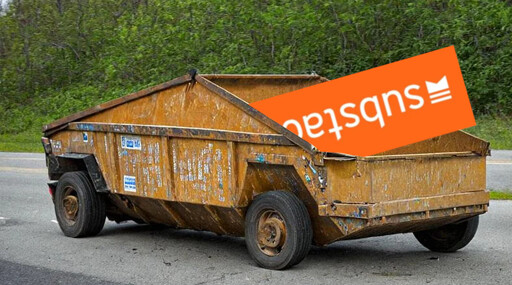A lot of us know by now that Substack has a Nazi problem. It not only profits from fascist voices, it actively promotes their work and recruits them. And it’s funded by Silicon Valley anti-democracy billionaires like Marc Andreesen — the same type of people who are, right now, raiding the US government to basically cut funding for social services and scientific research, and to steal money for themselves.
Still, a lot of talented writers — including some that I subscribe to — publish on Substack. But others have moved to Ghost, an open source and non-shitty-tech-bro newsletter service. These include Casey Newton’s publication Platformer, Molly White’s newsletter Citation Needed, and plenty of others. From the beginning, 404 Media decided to publish on Ghost because, as I understand it, Substack sucks.
. . .
If you already have a Substack, Ghost has written documentation explaining how to migrate your subscribers (including paid ones) to a new Ghost newsletter. Since both Substack and Ghost use Stripe as a payment processor, your paid subscribers don’t have to do anything to continue paying you.



RSS is the hero that saved us from Spotify (et at.) walling off podcasts behind their paywall.
I don’t think we’ve been saved just yet. Their market share is still growing and they don’t support importing RSS feeds. Nor do they support outgoing video feeds for RSS. And they continue to pay for exclusive partnerships.
I don’t think we’re completely saved forever but they tried making podcasts Spotify-exclusive. I remember a bunch of Gimlet podcast hosts being like “please come to Spotify to listen to us – it’s better than it used to be!” They ended up caving because people didn’t listen. Podcasting is built around RSS – even though people aren’t really aware of it – and people expect to get them this way.